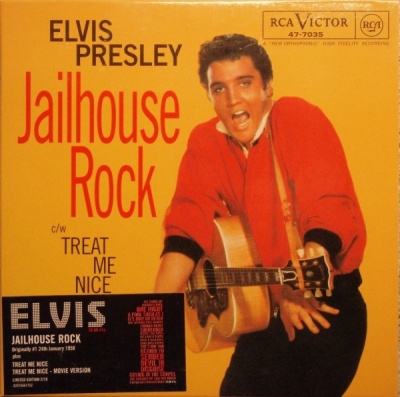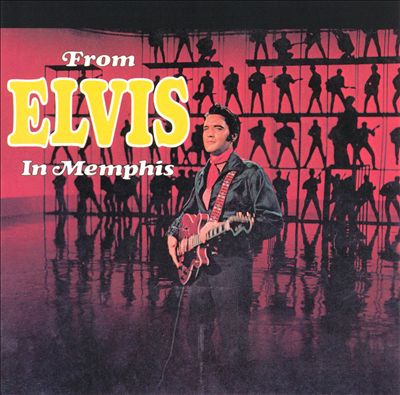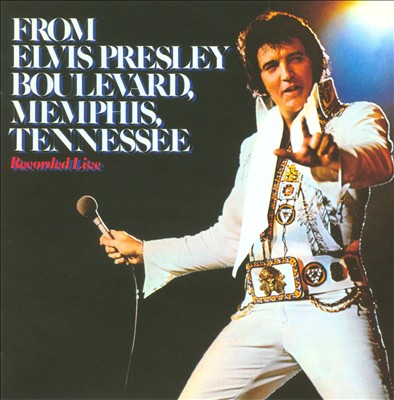
Elvis Presley was an American singer and actor who became one of the most popular cultural icons in history. He is often referred to as “The King of Rock n’ Roll” or simply “The King.” With a career spanning from 1956-1977, he released 53 albums and sold over a billion records worldwide.
Elvis Presley was an American singer and actor. He was born in Tupelo, Mississippi. His musical career started when he signed with Sun Records in 1954. He became a star after signing to RCA Victor in 1956. Read more in detail here: elvis presley songs.
Elvis Presley is one of a select group of performers that shaped mainstream music in the twentieth century. When Presley seized America’s imagination in 1956 with four consecutive number one singles, he may not have invented rock & roll, but he was unquestionably its first rock star, a singer whose charisma intertwined tightly with his natural talent for a combination that seemed combustible, sexy, and dangerous. Elvis Presley spent the next two decades at the top of the charts, surviving fashion changes, self-inflicted career setbacks, and comebacks while his music grew and developed. Presley never abandoned the rock & roll he pioneered on his early Sun Records singles, but he developed an effective counterpoint to it by honing a rich, resonant ballad style while also delving into blues, country, and soul, progressions that came into sharp relief with his celebrated “comeback” in the late 1960s. Some musical subtleties were obscured by Presley’s extraordinary popularity, which he maintained via a lengthy run of B-movies in the 1960s and lavish Las Vegas performances in the 1970s, aspects that were crucial in establishing a stardom that lasted long after his untimely death in 1977. In his absence, the legend of Elvis Presley grew, aided by the conversion of his Memphis home Graceland into a tourist attraction, transforming him into a massive cultural icon only tangentially related to his rock & roll roots; fortunately, time helped clarify the depth and breadth of his musical accomplishments. He undoubtedly ushered in the rock & roll era, influencing the sound and attitudes of the final few decades of the twentieth century, but he also created a unique body of work that represented the finest of American music.
Presley had relocated to Memphis by his teens, where he absorbed the lively melting pot of Southern popular music in the shape of blues, country, bluegrass, and gospel. He was born to a poor Mississippi family in the midst of the Depression. He became a truck driver after graduating from high school, seldom, if ever, singing in public. Some recordings made at the fledgling Sun label in Memphis in 1953 and 1954, mainly for Presley’s personal enjoyment, piqued Sun owner Sam Phillips’ attention. Phillips paired Presley with guitarist Scotty Moore and bassist Bill Black in mid-1954, seeking for a white vocalist with a Black vibe. The group reportedly came up with a cover of an Arthur Crudup blues song, “That’s All Right Mama,” which became Presley’s debut record, almost by mistake.
Presley’s five Sun singles established the R&B/C&W fusion that would come to define rockabilly music. They are considered by many to be not just Presley’s greatest singles, but also the best rock & roll ever recorded. Presley’s claim that he made blues acceptable to the white market is incomplete; the singles typically mixed blues covers with country and pop songs, all of which were transformed into rock & roll (a term that didn’t exist at the time) with the pulsing beat, slap-back echo, and Presley’s soaring, frenetic vocals. “That’s All Right Mama,” “Blue Moon of Kentucky,” “Good Rockin’ Tonight,” “Baby Let’s Play House,” and “Mystery Train” are among the most well-known early rock tunes.
The singles did well in Memphis right away, and by 1955, they were beginning to sell well to country fans all across the South. Presley, Moore, and Black embarked on a tour with a stage performance that became more wild and provocative, with Presley’s swiveling hips creating huge uproar. The inclusion of drums accelerated the transition to full-on rock. “I Forgot to Remember to Forget”https://www.allmusic.com/”Mystery Train” was the final Sun song to reach number one on the national country charts in late 1955. Presley was clearly a star-making talent, drawing the attention of major record companies as well as Colonel Tom Parker, who became Presley’s manager. In late 1955, Sam Phillips, in need of cash to grow the Sun label, sold Presley’s contract to RCA for $35,000.00; a bargain in retrospect, but an enormous amount at the time.
This is the moment at which musical historians begin to disagree. For many, his following work for RCA, which spanned more than two decades, was a constant disappointment, never recapturing the pure, primal energy that had been captured so brilliantly on the few of Sun singles. Presley, on the other hand, was not a purist. More than anything else, he wanted to be successful. To do so, his work needed to have a more pop feel to it; in any event, he’d never been one to dismiss the mainstream, citing Dean Martin as one of his early idols. At RCA, his rockabilly was laced with enough pop flavor to chart in all genres, not just country.
The effects were barely any milder than the Sun sessions, at least at first. His debut song, “Heartbreak Hotel,” went to number one and, with the assistance of several national television appearances, helped him become an overnight celebrity. The double-sided monster “Hound Dog” was a number one follow-up to “I Want You, I Need You, I Love You.” https://www.allmusic.com/ “Don’t Be Cruel” was one of the most successful songs in the industry’s history at the time. Elvis Presley and Elvis were both chart-topping albums, not only in the United States, but throughout the globe. The 1956 RCA recordings were frequently superb, ranking among the finest and most important recordings of early rock & roll, while being a little more sophisticated in production and a little less rootsy in attitude than his earlier work.

Worrisome indications, though, were beginning to emerge. In smoky, romantic ballads like “Loving You,” the Dean Martin influence grew more exaggerated and clichéd; the vocal swoops were more exaggerated and stereotypical, but the overall quality of his production remained excellent. Although Moore and Black continued to accompany Elvis on his early RCA recordings, the musicians parted ways after a few years.
Presley’s music and film ventures were halted in early 1958 when he was drafted into the army. During his two-year hiatus, there was enough stuff in the can to overwhelm the charts (during which he largely served in Germany). Surprisingly, when he returned to civilian life in 1960, he had the same degree of popularity as when he went.
Unfortunately, the same could not be said for the quality of his music, which was not only growing more sedate, but was also beginning to repeat itself or opt for operatic ballads that had nothing to do with rock. Presley’s rebellious, wild image had also been tamed to some extent as he and Parker started to plan a future based on Hollywood movies. Presley, in fact, gave up live performing entirely for almost a decade after leaving the Army to focus on filmmaking. The films, in turn, would be used to promote his albums while also generating the most money with the least amount of work. Presley spent the remainder of the 1960s churning out two or three films a year that, although generally lucrative, offered nothing in the way of narrative, performance, or social significance.
While there were some strong performances on Presley’s early albums, his career was eventually dominated by mediocre soundtracks, the most of which included filler or just absurd stuff. He had lost interest in spending a significant amount of time to his profession in the studio. Outtakes that had been in the can for years were often included on the soundtrack LPs (and these, sadly, were often the highlights of the albums). In the early 1960s, there were some excellent hits, such as “Return to Sender,” and there was even a flash of great, gritty rock, such as “Little Sister” or “(Marie’s the Name) His Latest Flame.” However, by 1963 or so, there was nothing to be enthusiastic about, despite the fact that he was still selling in huge amounts.
A school of Elvis apologists has arisen from the period approximately covering 1962 to 1967, anxious to wrestle whatever sliver of excellence that came from his records during this time. They also claim that Presley was given bad material and that Parker was mostly responsible for his emasculation. True to a point, but on the other hand, it could be argued, with some merit, that Presley was doing little to rouse himself from his artistic stupor, allowing Parker to destroy his artistic credibility without much protest, and holing up in his large mansion with a retinue of yes men who shielded their benefactor from much day-to-day contact with a fast-changing world.
In 1964, the Beatles, who were all huge Presley fans, dethroned him as the world’s most popular rock band. Furthermore, they accomplished this by composing their own songs and playing their own instruments, something Presley had never been capable of or wanted to do. They, as well as the British and American groups they inspired, were not afraid to voice their views, experiment musically, and take control of their creative path. Even if Elvis managed to squeeze out an obscure Dylan cover (“Tomorrow Is a Long Time”) on a 1966 soundtrack album, the overall impact was to make Presley, who was still cranking out pictures in Hollywood while psychedelic and soul music became the vogue, appear obsolete.
In 1967 and 1968, Presley began to show signs of a creative renaissance. Even if they weren’t classics, singles like “Guitar Man,” “Big Boss Man,” and “U.S. Male” were real rock & roll that sounded better than most of what he’d been putting out for years. A 1968 television special provided him with the chance to recast himself as a full-fledged leather-coated rocker capable of enthralling an audience and ready to return to his blues and country origins.

Presley’s voice, on the other hand, sounded excellent, and he returned to live performance in 1969, with weeks of performances in Las Vegas. National tours followed, demonstrating that he was still capable of being a great live performer, even though the exercises sometimes reeked of showbiz extravagance. (Presley never performed outside of North America and Hawaii, perhaps because Parker was an illegal immigrant who might have faced severe difficulties if he went overseas, as it was subsequently discovered.) Although Presley never had another Top Ten success after 1972’s “Burning Love,” studio and live albums were produced at a fast pace and generally sold fairly well.
Presley’s 1970s albums, like much of his 1960s work, have sparked heated debate among critics. When Presley was “on,” some say they were on par with anything he performed, particularly in terms of creative variety. True, the music was diverse, ranging from country to blues to full-fledged rock to church (Presley periodically recorded gospel-only releases, going all the way back to 1957). At the same time, his vocal mannerisms were sometimes stiff, and the content was occasionally subpar, but not as bad as that ’60s soundtrack fluff. Serious Presley aficionados will generally find that this late-period work has just a fraction of the appeal that his masterpieces from the 1950s have.

Presley was discovered dead at Graceland on August 16, 1977. The reason of death is still unknown, but it seems that narcotics had a role. A cult grew up around his legacy very immediately (if cult is the right word to use to describe millions of people), which is maintained alive by the hundreds of thousands of tourists who visit Graceland each year. Elvis memorabilia is a whole business in and of itself, with a lot of it being kitsch. Thousands of singers earn a livelihood by doing live impersonations of the King. But there are the Elvis sightings that were reported in the tabloids on a weekly basis at first, then less often as the decades passed.
![Follow That Dream [EP]](https://rovimusic.rovicorp.com/image.jpg?c=1aKxx47LpLyAit9LDI8ecASijaXJlYnq0St31qpAJWo=&f=4)

Frequently Asked Questions
What song did Elvis write about?
Love Me Tender is a song written by Elvis Presley and released in 1956.
What is considered Elvis most famous song?
Cant Help Falling in Love by Elvis Presley
What Elvis did to his wife?
Elvis Presley is an American singer, songwriter, and actor. He was born in Tupelo, Mississippi.
Related Tags
- elvis presley death
- elvis presley early life
- elvis presley children
- elvis presley parents
- elvis presley wife
